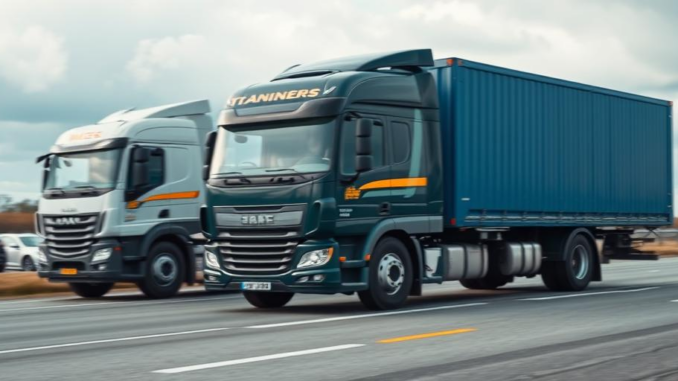
Summary
Investing in driver training is a smart strategy for UK businesses to lower fleet insurance premiums. Well-trained drivers are less likely to be involved in accidents, which translates into fewer claims and reduced risk for insurers. This article explores the numerous benefits of driver training, from enhancing road safety and improving fuel efficiency to boosting company reputation and driver morale, ultimately contributing to significant cost savings for fleet operators. Contact your insurance provider or a broker to discuss how driver training programs can positively impact your fleet insurance rates.
Discover how Focus360 Energy can help with BREEAM certification.
Main Story
Alright, let’s talk fleet insurance in the UK, because honestly, it’s a beast to manage these days. Between the ever-tightening building regs (who comes up with these things, anyway?) and the pressure to keep costs down, fleet operators are really feeling the squeeze. But you know what? Driver training could actually be your secret weapon. It’s not just about ticking boxes, it’s a real game-changer for safety and your bottom line.
Why Driver Training Actually Matters (To Your Wallet)
Think about how insurance companies work. They’re all about assessing risk, right? If your fleet’s got a history of bumps and scrapes, they’re going to see you as a high risk, and bam, your premiums go through the roof.
But flip that around: show them you’re serious about safety with proper driver training, and suddenly you’re looking like a much better bet. Trained drivers are more aware, they’re better at spotting hazards before they become a problem, and that means fewer accidents. Fewer accidents, fewer claims, and… you guessed it, lower insurance costs. I actually heard from a friend in the industry that effective driver training programs can realistically shave off 15-20% of your premiums.
It’s Not Just About the Money
Look, cutting insurance costs is great, but the benefits of driver training go way beyond that. I mean, what do you get with driver training?
-
Safer Roads, Period: This has to be number one. Well-trained drivers are simply less likely to cause accidents. It’s about protecting your drivers and everyone else on the road.
-
Fewer Accidents (Duh): Less accidents equal less hassle, less downtime, and, you know, fewer people getting hurt.
-
Lower Insurance (Again, But It’s Important): Insurers like it when you are not costing them money.
-
Better Fuel Efficiency: This is one people often miss. Training usually covers eco-driving techniques – things like smooth acceleration, smart gear changes, and cutting down on idling. It saves money on gas, and it is better for the environment.
-
Lower Maintenance Costs: Treat those vehicles better, and they’ll last longer. Simple as that, right?
-
Happier Drivers (Less Turnover): Drivers who feel supported and valued are more likely to stick around. That cuts down on recruitment costs and keeps things running smoothly.
-
A Better Image: Showing you care about safety makes your company look good. And it shows to your clients and partners that you care.
-
Higher Morale: When drivers feel competent, they’re just happier in their jobs.
What Makes a Good Training Program?
So, what should you be looking for in a driver training program? It’s not just about going through the motions. It needs to cover the important things:
-
Hazard Perception: Spotting trouble before it happens.
-
Defensive Driving: Assuming everyone else on the road is a complete idiot (because, let’s face it, sometimes they are) and driving accordingly.
-
Speed Awareness: Because speed limits are there for a reason, no matter how late you might be running. It’s about making sure you know why the speed limit is there.
-
Eco-Driving: Saving fuel, saving the planet (a little bit, anyway).
-
Vehicle-Specific Training: A van is not a lorry, and you can’t drive them the same way. Make sure you’re covering all the different vehicle types in your fleet.
-
Regular Refreshers: Skills fade. Keep those drivers sharp with ongoing training.
The Long Game
Okay, I’ll be real with you, there’s an initial investment involved. But you’ve got to see driver training as a long-term thing. I always think to myself, what are you waiting for? The savings on accidents, insurance, fuel, and maintenance? They add up big time. In fact, they can outweigh the initial cost of the program.
The Bottom Line
If you’re a fleet operator in the UK, and you’re looking for ways to cut insurance costs (and who isn’t, right?), driver training is a no-brainer. Prioritize safety, invest in your drivers, and you’ll be creating a safer, more profitable operation. Talk to your insurance provider or a broker; they can tell you exactly how training programs can impact your rates. And hey, it’s February 10, 2025, so this info is pretty up-to-date… but always double-check the latest regulations, because things change fast!


So, if drivers who think everyone else on the road is an idiot are safer, does that mean I’ve been inadvertently acing defensive driving my whole life? Should I expect a fleet discount soon? Asking for a friend (it’s me, I’m the friend).
Haha, love the self-awareness! Seriously though, that heightened awareness *is* a key part of defensive driving. While a fleet discount might be a stretch, it’s worth checking with your insurer! Some do offer discounts for drivers with clean records and/or those who complete defensive driving courses. Good luck!
Editor: FocusNews.Uk
Thank you to our Sponsor Focus 360 Energy
So, defensive driving includes assuming everyone else is a complete idiot, eh? Finally, an admission that explains rush hour! Maybe we should make it a mandatory course *before* issuing licenses. Think of the insurance savings then!